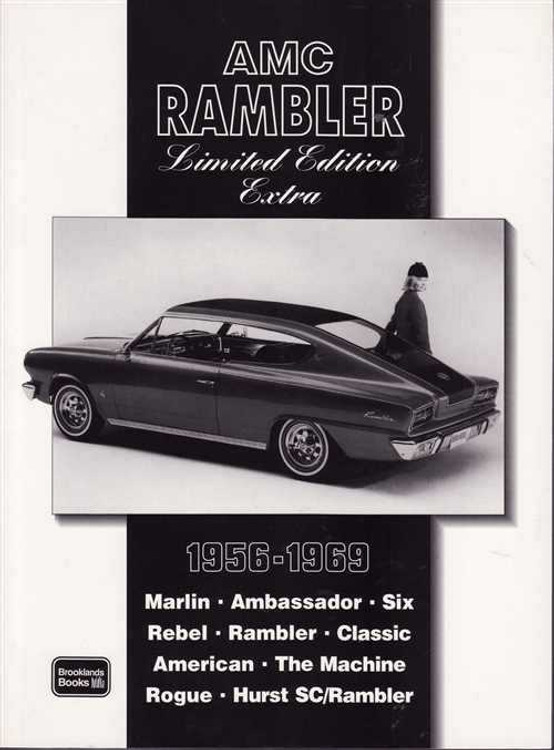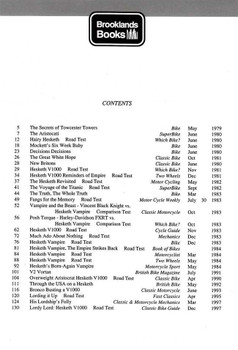Description
By: Brooklands Books .
Readers will be able to trace Ramblers progress over their final 14 years of production from the stories that follow. However, they might find the facts listed below interesting, revealing and entertaining. 1956: Rambler has complete redesign and carries either Hudson or Nash badges and have 4 doors on 108-inch wheel base. The Cross Country is introduced as the first 4-door hard-top stationwagon and the engine is transformed from L-head to OHV. Rambler sets transcontinental economy record at 32 mpg. 1957: Ramblers now appear with no Hudson or Nash badges, gain a facelift and can be fitted with V8 engines for the first time.
Mid-year the fast Rambler Rebel makes its debut powered by a 327-cid V8 engine. Fuel injection is talked about for the Rebel. 1958: All models carry the Rambler nameplate and the short wheel based cars are called American. All V8s take Rebel nameplate. New Ambassador series debuts which is actually an extended version of Rambler. 1959: Rambler earns $60 million profit building 374,000 vehicles and gains 6th place in the industry. Six cylinder Ramblers out sell Rebel V8 models. 1960: Rambler gains 4th position in US sales with production of 458,841 vehicles. A new plant is opened in Brampton, Ontario and a new facility is purchased in Kenosha, Wisconsin. 1961: Rambler overtakes Plymouth and takes 3rd place. The American range is restyled and Classic badging is introduced on the mid-priced model. 1962: Richard A. Teague becomes Director of Styling and the flagship Ambassador is down sized. Pontiac and Oldsmobile overtake Rambler in the sales race. 1963: Rambler wins Car of the Year honors and the American wins the Mobilgas Economy Run.
Classic and Ambassadors are redesigned and now appear on 112 inch platforms. Kenosha output increased to nearly 700,000 pa. 1964: Rambler American is redesigned by Teague and increases its wheel-base. Total Rambler output falls 12 percent and is now in 8th place amongst domestic manufacturers. 1965: Ambassador and Classic lines restyled and the later adds a convertible to the range. The American does well again in the Mobilgas Economy Run. 1966: Ambassador and Marlin drop Rambler name. American, Rogue, Classic and Rebel lines still sell as Ramblers. 1967: AMC in financial trouble - losses approach $76 million. Marlin moves from Classic platform to Ambassador chassis. 1968: Rambler name is now restricted to American and Rogue models only. Total AMC/Rambler sales rise 23 percent with the introduction of the Javelin pony-car.
The compact American series begins its last model year without its American badge and is sold simply as the Rambler series. 1969: The Rogue is still in production and a tuned version is added - the wild SC/Rambler (nicknamed the Scrambler). This car was built in conjunction with Hurst Performance Products. The final Rambler badged car leaves Kenosha on June 30th 1969. 4.2 million Ramblers were built since 1950. We have produced a number books on AMC vehicles covering Hudson, Javelin and Nash cars to name but a few, however on a recent visit to Hershey Pa. I was impressed by the number of well preserved Ramblers on show, hence this book.
This is a book of contemporary road & comparison tests, new model intros, long term report & driver's impressions.
Models covered:
Marlin, Ambassador, Six, Rebel, Rambler, Classic, American, Rogue, Hurst SC/Rambler and the Machine.























